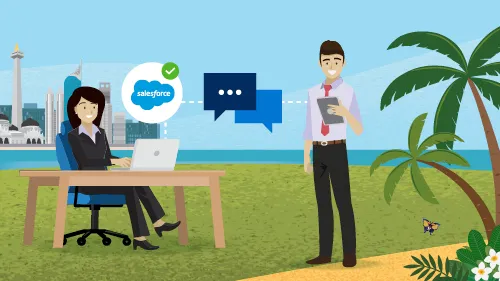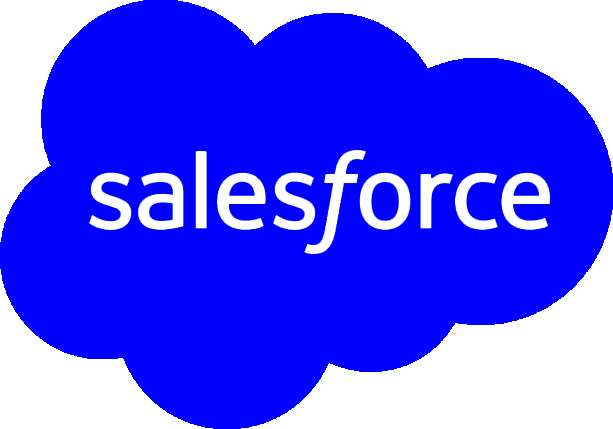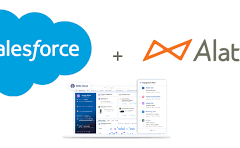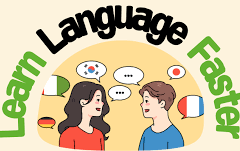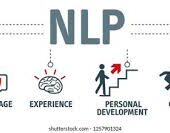Following is an intro to Salesforce acronyms that you will encounter when discussing Salesforce CRM.
| Acronym | Meaning | Definition |
| AKA | Also Known As | Due to name changes Salesforce has made to some products and also the slang/pet names the Salesforce community adorn certain functionality, these three letters have crept into our vocabulary. |
| BA | Business Analyst | Business Analysts are the people in your organization who are asking ‘why’ (why a process happens the way it does) to understand what the business needs from its technology. As an organization grows, it typically demands larger and more complex software solutions. That’s where BAs come in. |
| BSS | Business Support System | “Solutions which streamline operations, reduce costs, and help businesses create more innovative products by centralizing customer data and automating processes.” (source) |
| CTA | Certified Technical Architect | Nope, not “call to action” as you may have guessed! CTAs are the ‘elite’ among Salesforce professionals. CTAs have proven they have the knowledge, skills, and capabilities to design and build high-performance technical solutions on the Salesforce platform. The grueling exam is the highest certification and ultimate test; even though it’s been around since 2012, only a few hundred professionals have earned their CTA creds. |
| DF | Dreamforce | Dreamforce is Salesforce’s flagship conference – but a conference like no other! Tickets to this annual event are highly sought-after because of the learning and networking opportunities available to the 170,000+ attendees (not to mention the legendary parties, too!) |
| FKA | Formerly Known As | Due to the name changes Salesforce has made to some products, these three letters have started to creep into our vocabulary to avoid confusion, bringing the person we’re speaking to along with us. |
| EE | Enterprise Edition | You will commonly hear these Salesforce editions: Professional, Enterprise, and Unlimited. Enterprise Edition (EE) is where most organizations opt to start from, where you gain access to the features that most organizations need. |
| GA | General Availability | The release status where a feature has been formally released. This happens by its inclusion in a Salesforce release cycle (Spring, Summer, Winter). Support will be available as technical support teams have been briefed on the functionality. (It comes after the Pilot and Beta phases). |
| IaaS | Infrastructure as a Service | “Self-service models for accessing, monitoring, and managing remote datacenter infrastructures, such as compute (virtualized or bare metal), storage, networking, and networking services (e.g. firewalls). Salesforce does not offer Infrastructure-as-a-Service (IaaS) services. It is a customer of them, primarily Amazon Web Services.” (source) |
| KPI | Key Performance Indicator | “A Key Performance Indicator is a measurable value that demonstrates how effectively a company is achieving key business objectives.” (source) Admins play a key role in KPI tracking, tasked to build Salesforce dashboards that demonstrate business trends. |
| LEX | Lightning Experience | Salesforce revamped the product interface around 2015 after having a relatively consistent look and feel for its 16 years in operation. Salesforce Lightning was designed to be a big improvement in user experience – to boost user productivity and make CRM a pleasure to use. Most organizations have now transitioned to Salesforce Lightning from Classic. |
| LOB | Line of Business | Line of Business could often come up when planning Salesforce projects. For example, Sales, Marketing, etc. When it comes to packaging, you can either split by project (let’s say Quote to Cash broadly) or by LOB. |
| PaaS | Platform as a Service | “A set of cloud-based services that enable business users and developers to build applications at speed…As it’s a cloud-based service there’s no need to worry about the set-up and maintenance of servers, patching, upgrades, authentication.” (source) Salesforce characteristics that make it PaaS include a Mobile Software Development Kit (SDK), managed cloud database, and point-and-click app building. |
| PE | Professional Edition | You will commonly hear these Salesforce editions: Professional, Enterprise, and Unlimited. |
| QA | Quality Assurance | QA is a stage of testing/test automation, which is essential to manage risk and deliver quality Salesforce releases on time. The quality of any Salesforce customizations is your responsibility – not Salesforce’s! QA teams will stress-test the system’s functionality and report any bugs that need to be resolved. |
| ROI | Return on Investment | As the name suggests, this is the return (the revenue) that an organization has gained as a direct result of an investment (budget spent). This is heard in the Salesforce ecosystem in multiple contexts – it could be an investment into a new Salesforce product, enhancement project, or AppExchange app. It could be RevOps teams performing ROI reporting across their marketing and sales data. |
| SaaS | Software as a Service | Salesforce set out to be SaaS through and through! A third-party provider, like Salesforce, hosts your CRM and related applications for your users to access over the internet. In the case of Salesforce, licenses to access the service are typically billed annually, with a contractual commitment of one to three years. That’s why SaaS was revolutionary in the beginning, as companies were no longer locked into one system, with the possibility to switch providers without investing in the IT infrastructure themselves! |
| SDLC | Software Development Lifecycle | “A process that produces software with the highest quality and lowest cost in the shortest time possible.” (source) As Salesforce is a platform that businesses extend according to their evolving needs, you may hear this term! |
| SFDC | Salesforce dot com | Salesforce pioneered cloud CRM, so it was always referred to as ‘Salesforce dot-com’ in the early days to emphasize its online accessibility and to distinguish itself from premise offerings. The acronym still sticks today, especially among serving community members. |
| SLACK | SearchableLog of All Communication and Knowledge | This might seem like a strange entry on this list, but Salesforce’s workplace instant messaging/collaboration platform is, in fact, an acronym, standing for “Searchable Log of All Communication and Knowledge”. Yes, Slack is a real word you’ll find in the dictionary, often used in slang – to “slack off” or “cut me some slack”. Don’t you think these associations drum up collaborative, highly responsive, productive, happy teams? You’re right – it all sounds dull. |
| SME | Subject Matter Expert | This is an individual with specialized knowledge in a specific area. In the Salesforce ecosystem, you will find individuals with a depth of knowledge in a niche area that makes them indispensable to a particular business model or project. |
| SOSF | State of Salesforce Report | The annual report, produced by IBM, contains carefully curated research into the Salesforce ecosystem’s key trends. |
| TBID | Trailblazer ID | Trailblazer ID is how someone authenticates (i.e. logs in to access) Salesforce digital experiences – think Trailhead, Salesforce Events, Salesforce Help (documentation), Trailblazer Community, Salesforce+, developer.salesforce.com, and the rest of the 25+ other experiences. Practically speaking, this is a single sign-up and sign-on experience that will enable you to keep your profile and settings with you, no matter which digital experience you’re using or wherever your career takes you (for example, if you change jobs). |
| /u/m | Per user, per month | There are multiple different types of Salesforce licenses, most of which Salesforce bill your organization for the number of users by month that take advantage of the services they provide. You may see this abbreviation on Salesforce’s website pricing pages, on contracts, etc. |
| UAT | User Acceptance Testing | Keeping your users productive is the aim of any development project. There are plenty of ways to customize Salesforce’s functionality, look and feel, but how do you ensure that what you deploy into production a) functions as it should and b) is what your users actually want? That’s where UAT comes in (also known as beta or end-user testing), for users to stress-test the system how they would use it day-to-day. Sometimes carried out using scripted use cases (eg. do this, do that, what was the result?) or let your users roam free to catch things you may have missed. UAT is covered in the Salesforce UX Designer certification. |
| UE | Unlimited Edition | You will commonly hear these Salesforce editions: Professional, Enterprise, and Unlimited. Unlimited edition (UE) gives you access to the best in the suite. |
| UI | User Interface | “User interface (UI) is the point of human-computer interaction and communication in a device. This can include display screens, keyboards, a mouse and the appearance of a desktop.” (source). |
| UX | User Experience | “User experience (UX) design is the process design teams use to create products that provide meaningful and relevant experiences to users. This involves the design of the entire process of acquiring and integrating the product, including aspects of branding, design, usability and function.” (source) The Salesforce UX Designer certification brings this to the forefront. |
